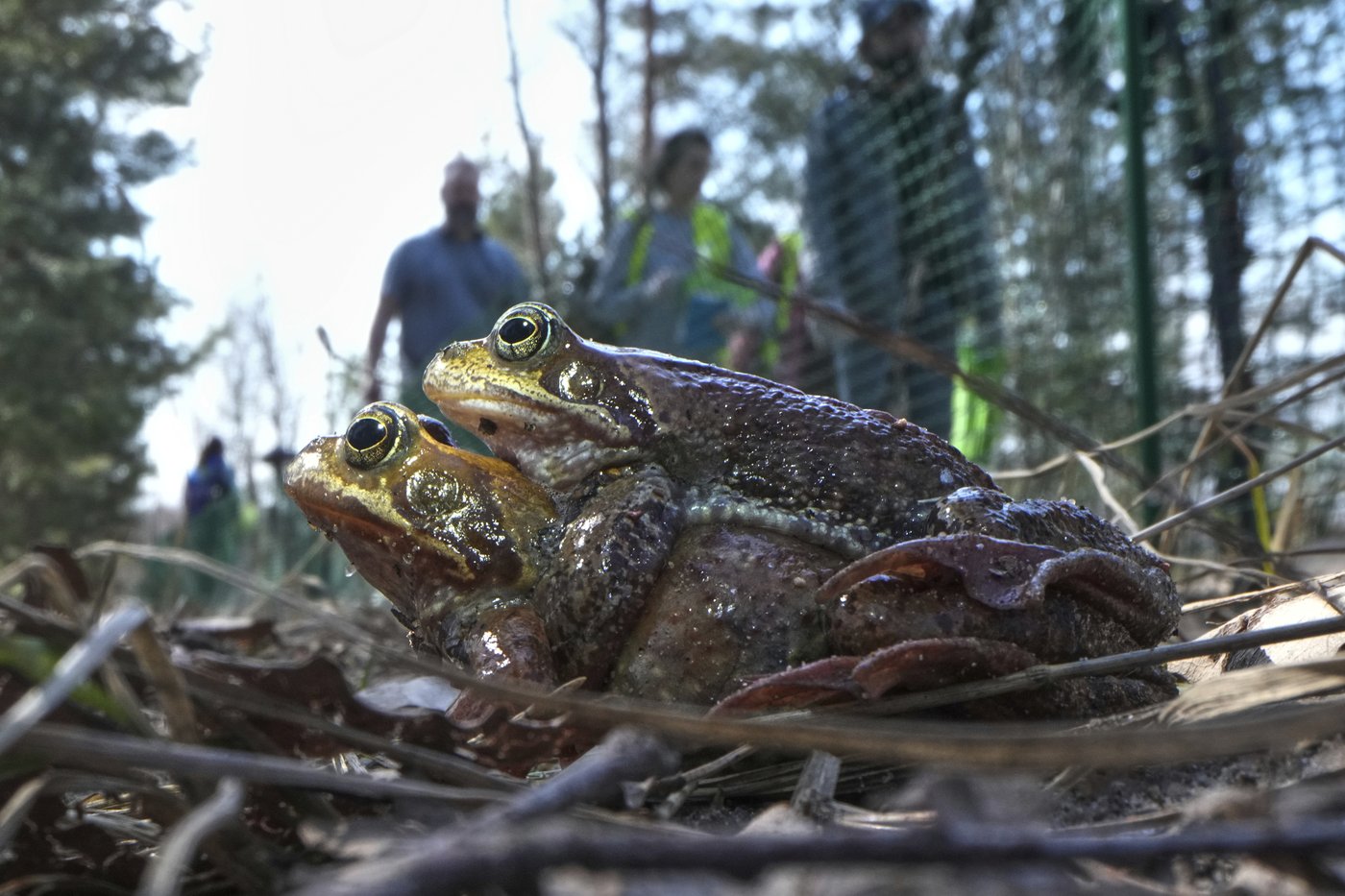Elevate your local knowledge
Sign up for the iNFOnews newsletter today!
Sign up for the iNFOnews newsletter today!
Selecting your primary region ensures you get the stories that matter to you first.

A NATURE RESERVE NEAR SESTRORETSK, Russia (AP) — It happens every spring along a section of road north of Russia’s second-largest city of St. Petersburg: Volunteers, many in yellow vests, patrol near the Sestroretsk Bog nature reserve.
They serve as crossing guards for thousands of toads and frogs, who are trying to navigate toward their spawning sites.
There usually isn’t much traffic, but even the relatively low number of vehicles still would kill up to 1,000 toads each year, said Konstantin Milta, senior herpetology researcher with the St. Petersburg Zoological Institute.
“On large highways, the death rate is monstrous. Sometimes the surface of the road can be covered with a layer of dead animals,” Milta told The Associated Press.
On this section, a large reddish-orange sign that features one of the amphibians warns motorists: “Attention! Slow down! Toads are crossing the road.”

When the volunteers find one of the creatures, they pick it up, put it in a plastic bucket and make a record before depositing it in the grass on the other side.
“So cute!” one of the volunteers said, referring to how the toad clung to her pink glove.
In the Sestroretsk Bog reserve, “toads migrate from the forest to the bay in the spring, reproduce in the reed beds in the coastal strip, lay eggs, and then, somewhere in mid-May, they leave the water and migrate back to the forest,” Milta said.
“So they cross this road twice,” he added.
Members of this bucket brigade have been volunteering their time since 2016, said Viktoria Samuta, head of the environmental education section of the Directorate of Protected Areas of St. Petersburg.

Depending on the weather, the work begins in mid-April and continues for a month or longer, she said, with more than 700 volunteers take part every year.
Last year, Samuta said, volunteers helped move thousands of specimens.
“It is very good that in recent years there have been more and more people ready to help living beings,” she said. “Our mission is, precisely, to make people love our nature more and more, and be willing to help it.”
Volunteer Diana Kulinichenko called it a nice break from her studies.
“I’ve been whining all semester that I want to go to the forest,” Kulinichenko said. “And here’s the forest, the toads, you help the toads, you’re in the forest, you breathe clean air. And I just really want to volunteer, so after this I’ll be looking for where else I can do it.”







This site is protected by reCAPTCHA and the Google Privacy Policy and Terms of Service apply.
Want to share your thoughts, add context, or connect with others in your community?
You must be logged in to post a comment.